Indigenous Governance Database
NNI and Harvard Project Research
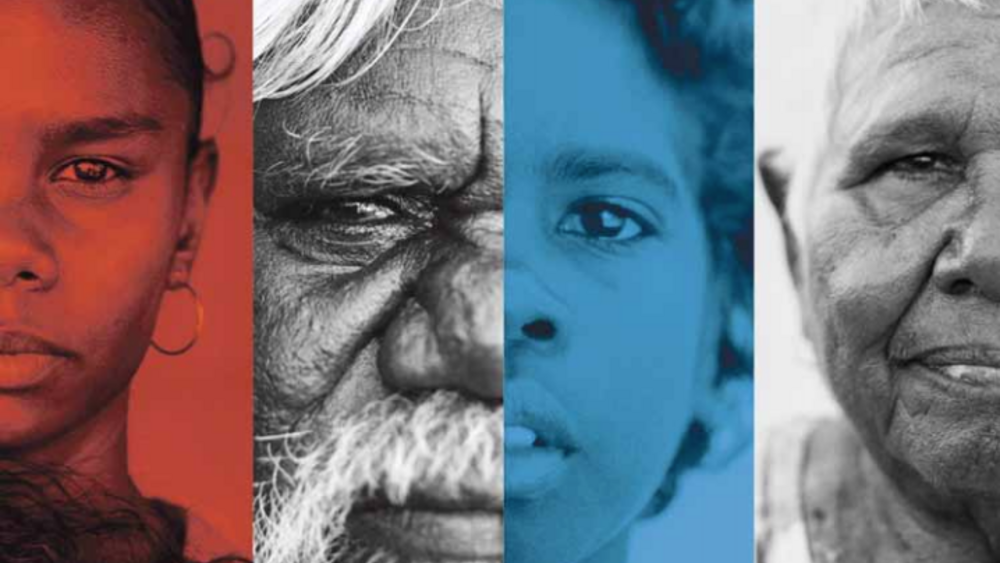
Can Australia follow Obama's lead?
This article was prompted by US President Barack Obama’s recent commitment to effectively empower American Indian nations to re-build their own decision-making capability. The President recognises that genuine self-determination is not only good public policy but is essential for…
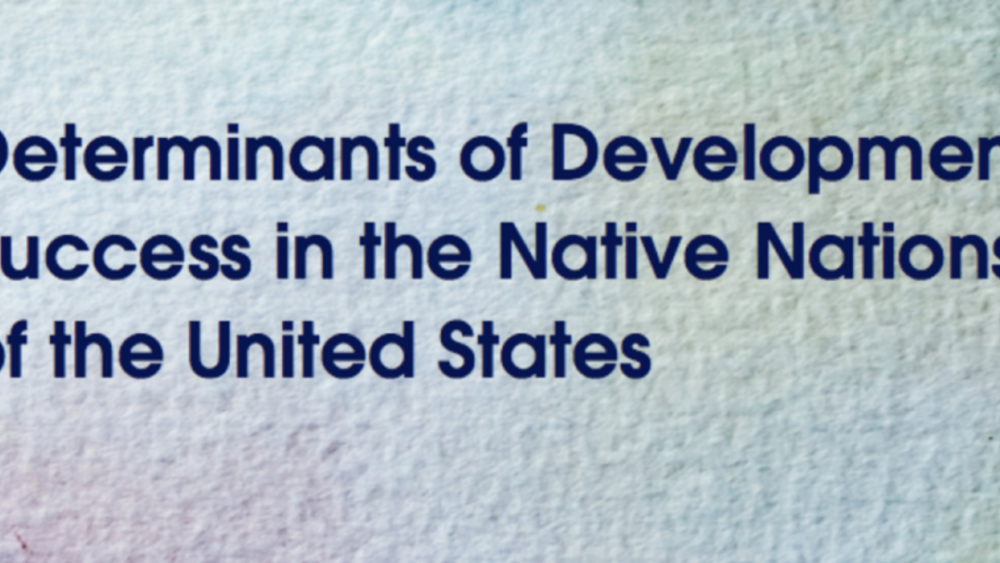
Determinants of Development Success in the Native Nations of the United States (English)
The poverty of indigenous North Americans, especially those living on reservations, has concerned Indian and federal policymakers for more than a century. After the treaty making phase and the establishment of the reservation system, federal policies to address Native poverty vacillated between…
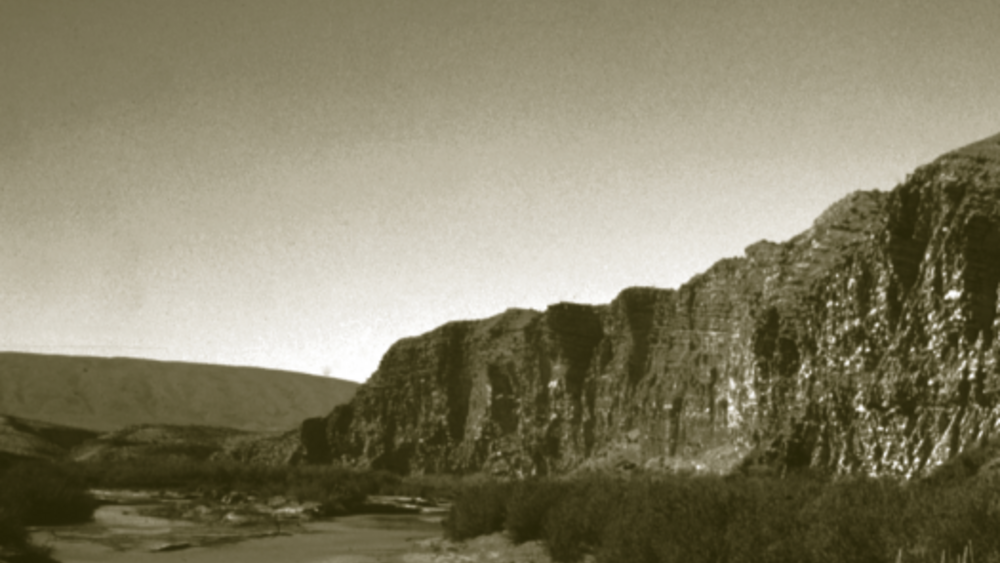
Protecting the Fish and Eating Them, Too: Impacts of the Endangered Species Act on Tribal Water Use
The scarcity of water in the American West and the increased demands for the resource have created much tension of late between tribes, endangered species advocates, and the holders of water rights granted by the states for non-native consumptive uses. The over-allocation of water by state…
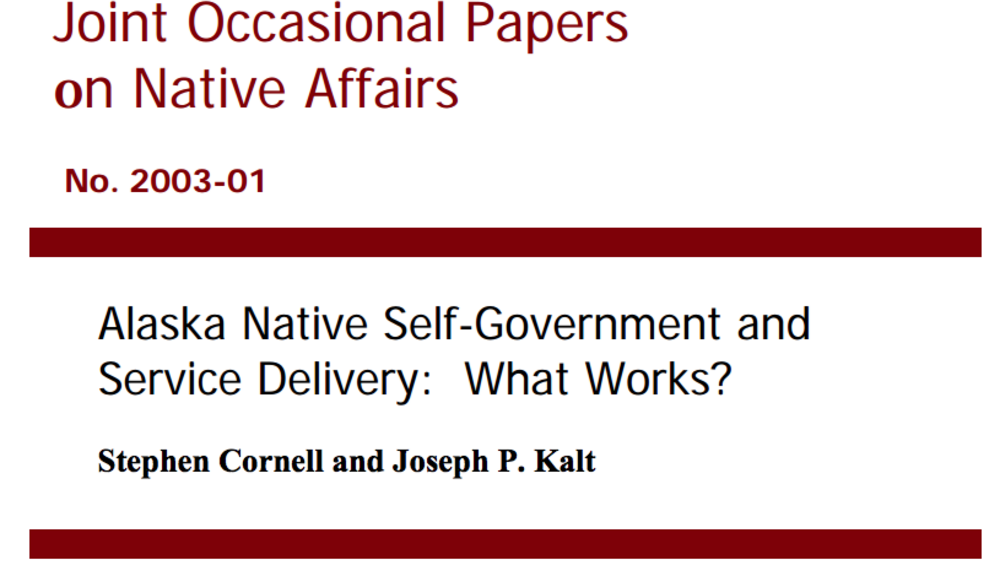
Alaska Native Self-Government and Service Delivery: What Works?
The Native peoples of Alaska have governed themselves for far longer than either the State of Alaska or the United States. Indeed, their rights of self-government are properly defended as basic human rights that are not unilaterally extinguishable by these other governments. Yet, today an…
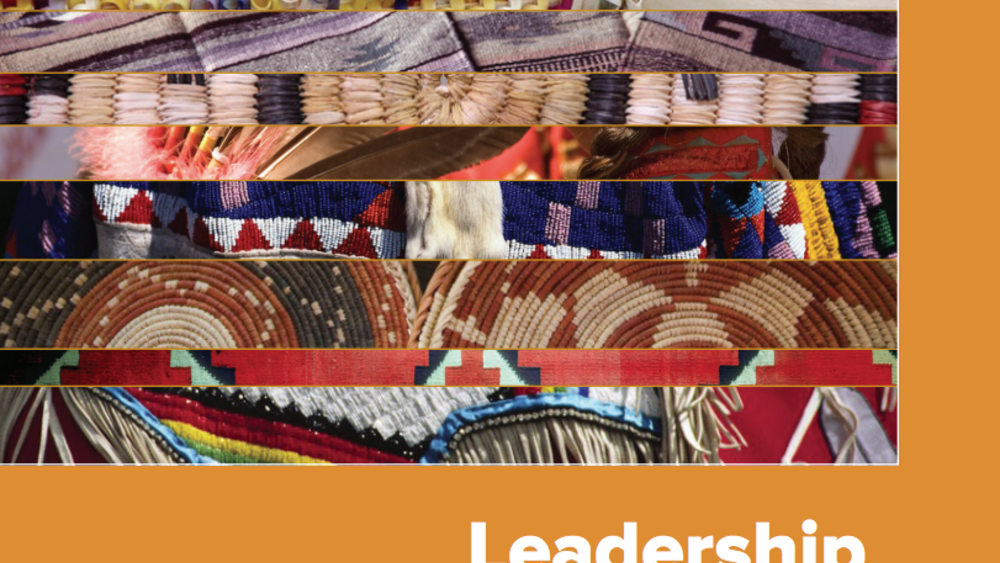
Leadership Development in the Native Arts and Culture Sector
Burgeoning cultural renewal in Native America and growing mainstream recognition of Native artists and their ideas have resulted in substantial growth in the Native arts and culture sector. The leaders of Native arts and cultural organizations have been a significant force behind this change. They…
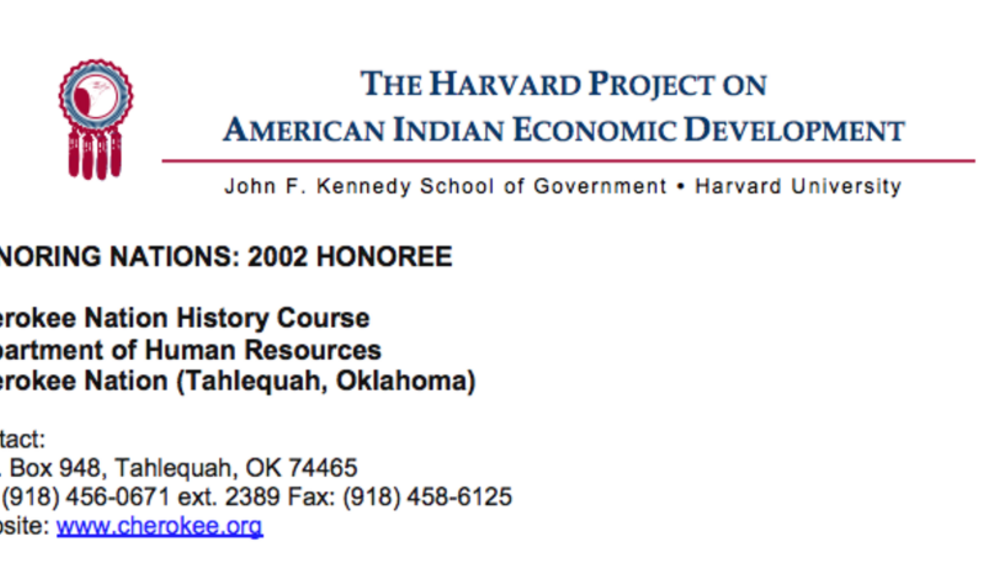
Cherokee Nation History Course
Launched in 2000, the Cherokee Nation History Course is a free, 40-hour, college-level study offered to 1,800 tribal employees and members of Cherokee communities. Through lectures, discussions, case exercises, and role-playing, the course teaches Cherokee history, culture, and government to both…
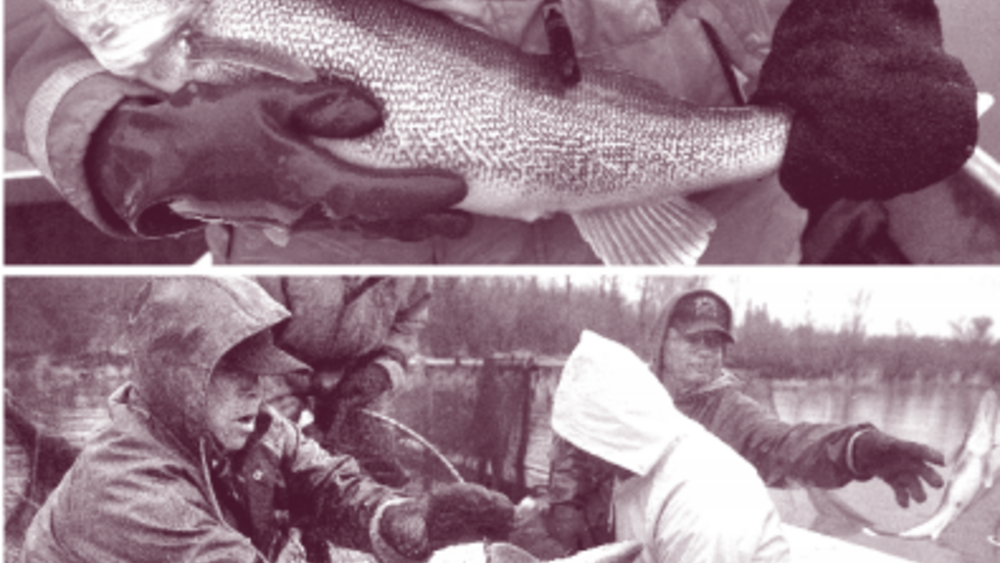
We Are the Stewards: Indigenous-Led Fisheries Innovation in North America
This paper offers an overview of the current state of Indigenous-led fisheries management in the United States and Canada. It summarizes major trends in Indigenous-led fisheries innovation in North America and presents common keys and challenges to the success of these efforts. It chronicles three…
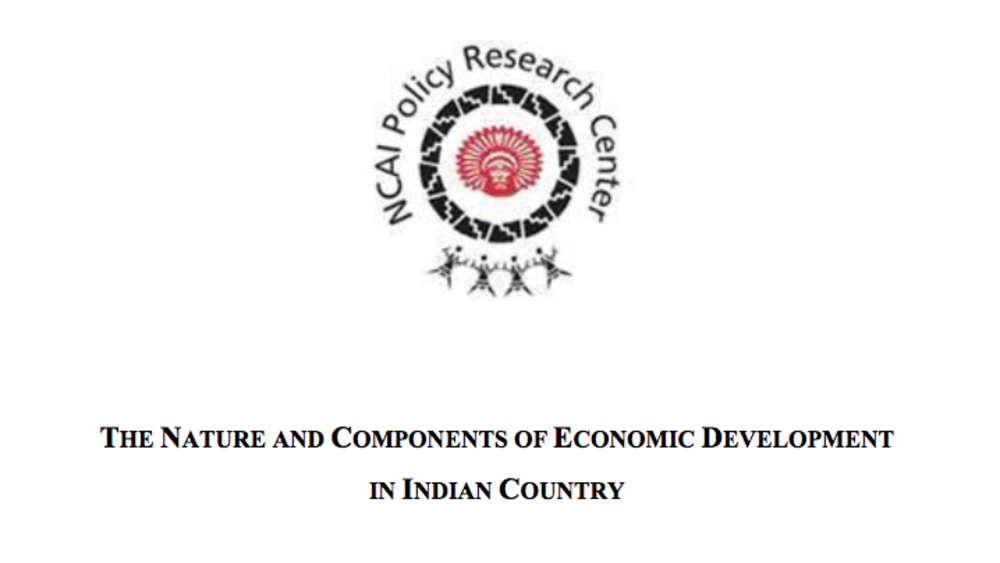
The Nature and Components of Economic Development in Indian Country
Defines what economic development means and how it applies in Indian Country; looks at the changing patterns of Indian Country economic development; debunks some of the myths and misconceptions about economic development in Native nations; suggests policy options for both Indigenous nations and the…
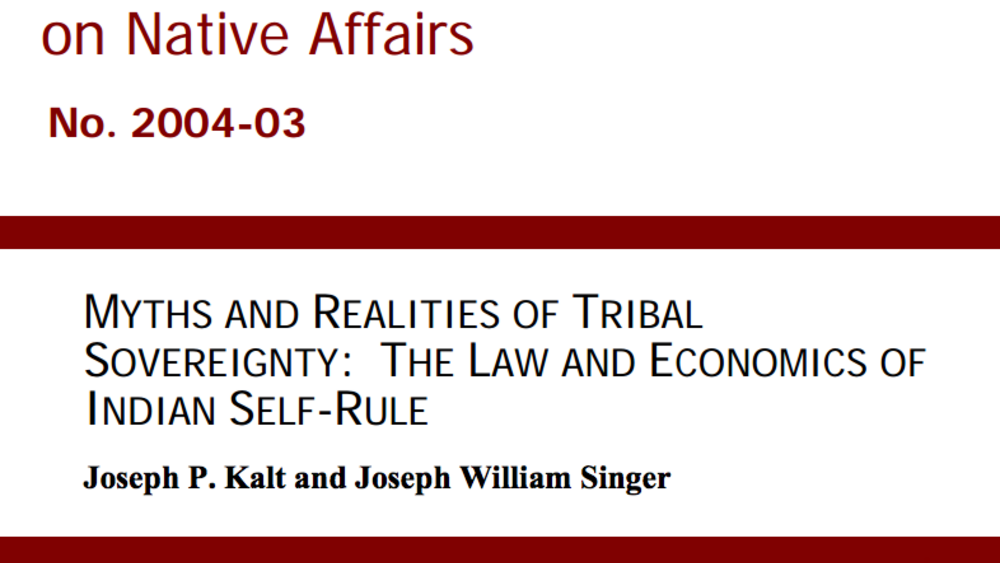
Myths and Realities of Tribal Sovereignty: The Law and Economics of Indian Self-Rule
The last three decades have witnessed a remarkable resurgence of the American Indian nations in the United States. The foundation of this resurgence has been the exercise of self-government (sovereignty) by the more than 560 federally- recognized tribes in the U.S. In this study, we explore legal…
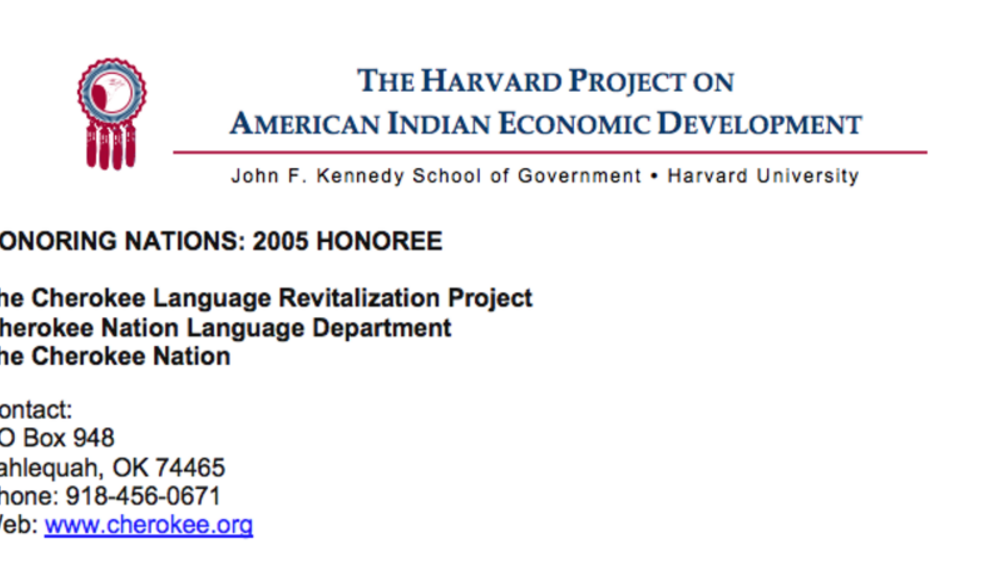
Cherokee Language Revitalization Project
In 2002, the Cherokee Nation carried out a survey of its population and found no fluent Cherokee speakers under the age of 40. The Cherokee Principal Chief declared a "state of emergency," and the Nation acted accordingly. With great focus and determination, it launched a multi-faceted initiative…

Borrowing Trouble: Predatory Lending in Native American Communities
With the collapse of the subprime mortgage lending market, predatory lending has become a significant national concern. In Native communities, however, predatory lending has been a major concern for years, since abusive lending practices have tended to proliferate more in minority and low-income…
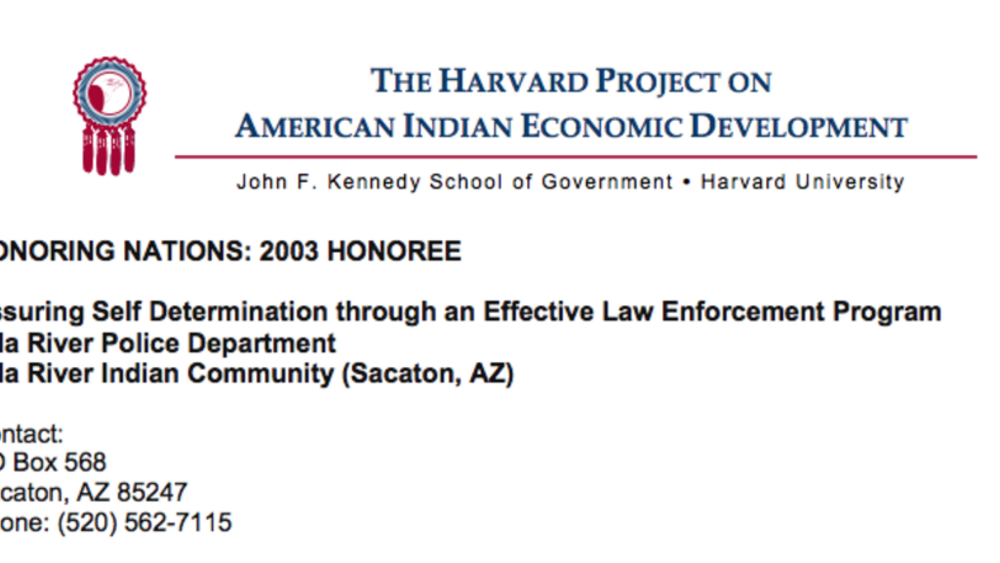
Gila River Law Enforcement Program
Serving a population of 17,000, the 92-employee Gila River Police Department operates a multifaceted law enforcement program that includes community-based policing, neighborhood block watch programs, a citizen’s police academy, and bike patrols. Since assuming control over law enforcement in 1998,…
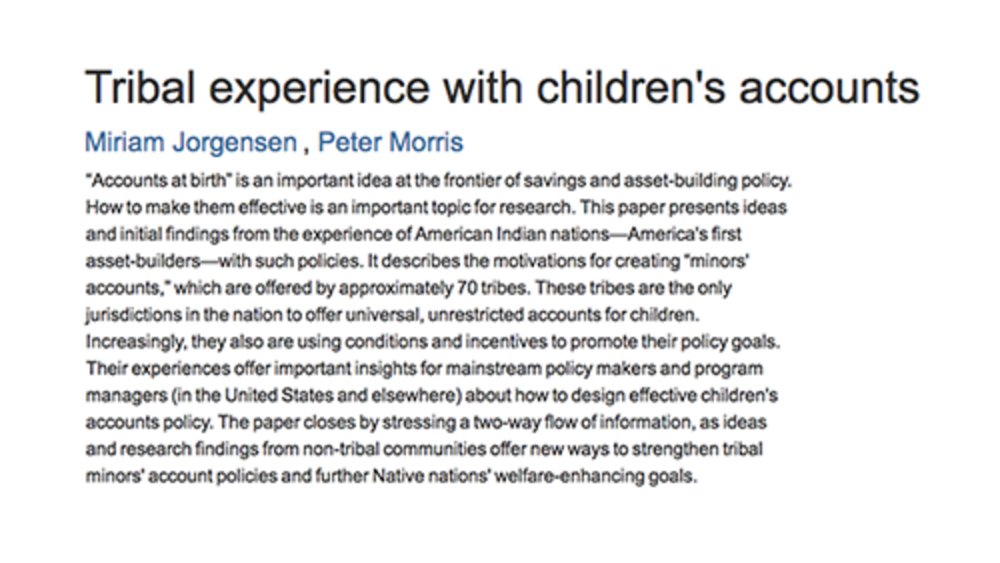
Tribal experience with children's accounts
“Accounts at birth” is an important idea at the frontier of savings and asset-building policy. How to make them effective is an important topic for research. This paper presents ideas and initial findings from the experience of American Indian nations–America's first asset-builders–with such…
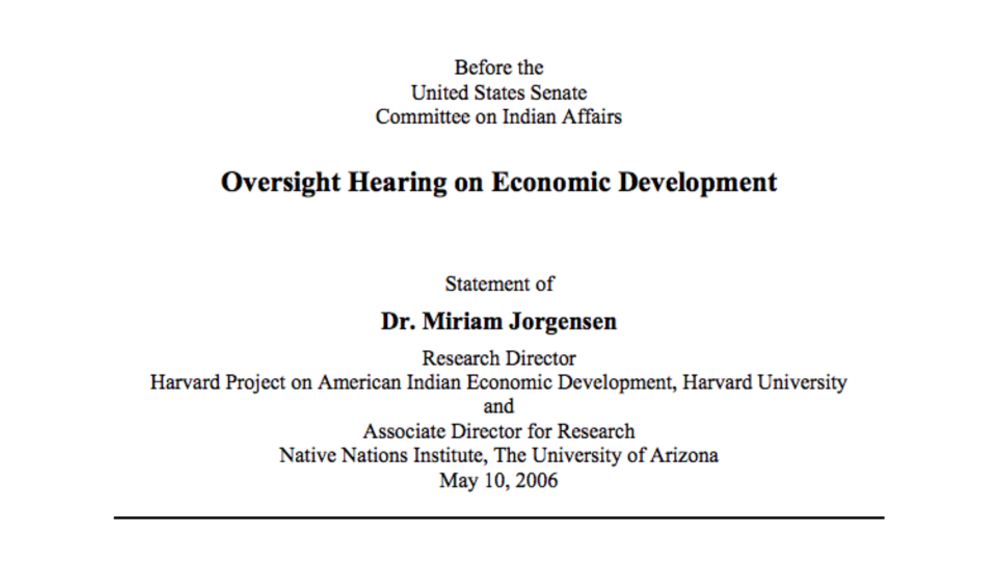
Statement before the United States Senate Committee on Indian Affairs Oversight Hearing on Economic Development
Why is it that, amidst the well-documented and widespread poverty and social distress that characterize American Indian reservations overall, an increasing number of Native nations are breaking old patterns and building economies, social institutions, and political systems that work? What explains…
Pagination
- First page
- …
- 6
- 7
- 8
- …
